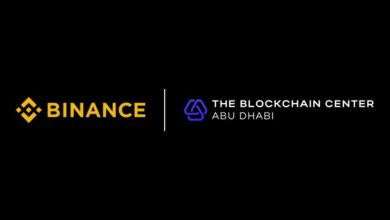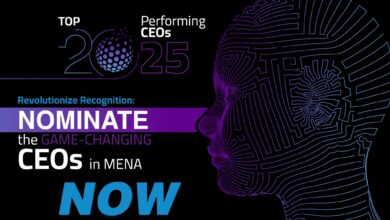Bitcoin Association carries out road show in the UAE

Bitcoin Association recently capped off a two-week trip to the United Arab Emirates to engage with the innovative business and investment community, headlined by a central role for Bitcoin SV companies at the 12th edition of the prestigious Ritossa Global Family Office Investment Summit, as blockchain technology gains a foothold in the Middle East. ‘Dubai is a key centre for blockchain development in the Middle East – especially for government-related projects,’ explains Jimmy Nguyen, Founding President of Bitcoin Association.
‘That appeals to us at Bitcoin Association, because we are looking to develop applications that have large scale data and transaction volumes. We aren’t looking at Bitcoin purely as a payments alternative; we want to help build massive-scale applications that generate huge volumes of transactions. Government driven projects are ideal for that, with use cases as diverse as managing traffic data or storing a national ID system on the blockchain. Those are the applications that generate huge numbers of transactions and which Bitcoin SV can cater to right now.’
The Bitcoin Association roadshow included several events, meetings and media appearances, including a four-day summit held for the Bitcoin Association team, putting in place plans for the coming years. The centrepiece of the trip, however, was the prestigious Ritossa Global Family Office Investment Summit (the Ritossa Family Summit), hosted by Sir Anthony Ritossa and held under the patronage of His Highness Sheikh Ahmed Al Maktoum at the Waldorf Astoria in Dubai’s Palm Jumeirah.
The Summit, in its 12th iteration, welcomed extraordinarily high-net-worth investors (and the decision-makers representing them) from a variety of backgrounds, with Ritossa Summit audience often representing $4.5 trillion USD in collective wealth. Thematically, the focus of this event was on using investments to provide a better world for tomorrow, not only growing and preserving wealth, but doing so in a socially responsible way.
‘Whenever we want to expand Bitcoin Association to new regions, it’s always important to find local partners who have relationships with key business, investor and government participants,’ explains Nguyen. Naturally, there could be few better opportunities to present the massive potential of Bitcoin SV. Nguyen gave a keynote presentation on Bitcoin SV, and players from the Bitcoin SV ecosystem featured in several sessions across the event’s two days.
Jerry Chan, CEO of Taal, hosted an interactive roundtable on how blockchain investments can support a better society with a new age of empowered data; while Roy Bernhard, Chief Visionary at The Bayesian Group, participated in the Fintech, Digital Assets and Security Token Offerings panel discussion.
Nguyen also moderated the Blockchain & Business: Delivering Real-World Benefits panel discussion, which included experts such as Dr. Marwan Alzarouni, CEO of the Dubai Blockchain Center, Muhammad Salman Anjum, Managing Director of the Bin Zayed Group in Dubai, as well as David Washburn, CEO of nChain. ‘It’s really clear to me in the meetings I had this afternoon that being here in-person and getting the opportunity to tell the nChain story in front of senior decision-makers here at the Ritossa Family Summit makes all the difference in the world,’ says Washburn.
‘Many implementations of Bitcoin today are not, in fact, the Bitcoin as famously invented by Satoshi Nakamoto: the original vision was a system that people and businesses could use on a daily basis, millions and even billions of times a day, for all forms of payments and data transactions. That’s not the universe that’s happened so far, but it’s the universe that we want to bring back with Bitcoin SV.’
Nguyen remarked that other iterations of Bitcoin have managed to attract speculative investment, but nothing tied to the actual utility of those protocols. For the first time, he explained, Bitcoin SV offers real utility and value as a data network which scales.
‘The blockchain should scale as big as market forces and economics dictate.’ He pointed to a competing blockchain – Ethereum – which is often touted as a blockchain for business. During periods of high congestion, Ethereum’s transaction fees can reach as high as $14USD. Compare this to Bitcoin SV, which projects to reach throughput capacity of 50,000 transactions per second in 2021 – rivalling the VISA network’s peak capacity – all the while retaining minuscule transaction fees of just fractions of a U.S. cent.
This is critical in a world which is becoming increasingly reliant on data – and Dubai is no exception with its world-leading ‘Dubai Smart City’ initiative. Juniper Research predicts that there will be 83 billion Internet of Things (IoT) endpoints by 2024, with the data generated by IoT devices expected to exceed 54 exabytes annually as soon as 2022 – that’s 54 trillion megabytes! Meanwhile, mobile data quietly doubles in volume every three years and penetration of ultrafast broadband grows by the second. A wave of extreme scale data is coming, and society needs technologies which can capture, manage and store those huge volumes of data so that it can bring real utility to both commercial and private decisionmakers.
The nexus between a rapidly changing world and the capabilities of Bitcoin SV – or more generally blockchain technology – was a common touchpoint for many who addressed the conference. In particular, as a potential ground-zero for the transformative applications of Bitcoin SV in this new world, Dubai is unmatched.
‘It’s clear to me that Dubai, in particular, is very tech-forward and they’re very open to blockchain and understanding how that can help any number of initiatives – including smart city projects,’ says Washburn. ‘We are really interested in what’s going on here because we think that the UAE is at the leading edge of this trend and we’re quite confident that by working together with local partners we can play an important role in this process.’
That sentiment was echoed by Nguyen, who was quick to emphasise the existing applications already built for the Bitcoin SV network in his presentation. It can be hard to translate the unique characteristics of Bitcoin SV in a way that demonstrates the implications these features have for the future of the network, so with a high-net-worth and high-powered audience front of mind, Nguyen focused on big projects and even bigger ideas.
Perhaps the best example for an audience sat in Dubai is that of GeoSpock – the Cambridge, UK company building solutions to manage the extreme scale data generated by the ‘everything connected’ world. Consider the statistics about the increasing amounts of data being captured, or becoming available to be captured, thanks to the Internet of Things. The growth of smart cities is a large part of that: tollbooths, CCTV, traffic lights and even streetlamps now form part of many cities’ digital footprints. Dubai has been a pioneer in smart city initiatives so far, and the UAE has one of the highest mobile penetration rates in the world. GeoSpock will be integrating Bitcoin SV blockchain features into its extreme scale data solutions, as part of their offering to capture, transform and translate the data from mobile and other smart devices into useable and actionable information for decisionmakers. One (of many) specific use case is that of carbon footprint reduction. Any strategy oriented toward that goal is certain to require vast amounts of data in order to be effective: how many vehicles are travelling through an area in a given space of time? How many people are in those vehicles? How many are delivery and service vehicles, and how many end-customers are they serving? All of this information will be available in smart cities, and only Bitcoin SV has the infrastructure required to collect, manage and act upon it.
Healthcare is another domain where the Bitcoin SV network can provide massive value. American company EHR Data is building the world’s first healthcare data platform which uses the Bitcoin SV blockchain. Patient records can be stored on the Bitcoin SV blockchain in a private manner, while also allowing patients to grant medical providers real-time access to critical data which concerns them. Having this information on an immutable, universally accessible and easily verifiable data network is clearly preferable to the status quo, in which patient records are kept in countless data silos across multiple, independent organisations. If every link in the healthcare supply chain can rely on a single source of data for patients, then the information that can be extracted from that data can greatly exceed what is currently available, offering the opportunity for better health outcomes for individuals and society.





